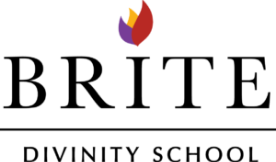Each faculty member is responsible for cycling required and elective course offerings described in the Course Listing in the Student Handbook. Projections of course offerings are requested and reviewed by the Associate Dean for Academic Affairs’ office.
Prior to advance registration, the Associate Dean for Academic Affairs requests a prospectus from the faculty for each course offered. The prospectus includes basic information on the following: course number and title, prerequisites, outline of course content, class procedures, summary of requirements, required book list, and grading procedures
Occasionally, faculty at Brite Divinity School may teach a course that involves travel. In these cases, such courses receive normal academic credit. Students who participate in travel courses led or taught by persons who have no formal academic association with Brite Divinity School, or with other ATS accredited seminaries, will not normally receive academic credit for such courses. However, recognizing the value inherent in many such trips, members of the faculty express a general willingness to consider offering specialized reading courses in their areas of expertise relevant to the travel engaged in by the student. In this way, a travel course could be used to enhance independent study that results in academic credit, even though students would not receive academic credit for the travel itself.
A professor may, for cause, waive the stated prerequisite for his or her course. However, if the prerequisite is a required course, that course must still be taken before completion of program.
Course numbers consist of five digits.
Courses in the 60000-69999 series will normally be taken by first-year M.Div., M.A.T.M.,
M.T.S. and C.T.S. students. These courses satisfy basic theological studies requirements.
Courses with an initial number in the 70000s do not satisfy basic theological studies requirements for M.Div. students. Courses in the 70000s include some lecture courses, denominational requirements, biblical languages, and seminar courses. These courses are available to M.Div., M.A.T.M., M.T.S., C.T.S., and Th.M. students. (Th.M. students must take 90000 level courses in their Area of Specialization and related areas.)
Courses with an initial number in the 80000-89999 series are for Doctor of Ministry students. DOMI courses are D.Min.-specific.
Courses with an initial number in the 90000-99999 series are for Master of Theology (Th.M.) and Ph.D. students.
Courses with a second digit that is a five (5) have a Masters-level prerequisite.
The last digit in each course number indicates semester hour value. A zero designates a course that may be repeated for degree program credit and/or is offered with varying semester hour value. The minimum and total maximum semester hour value of such courses is indicated in the course description.
Normally, independent studies will not be granted apart from exceptional circumstances. The guidelines for completion of the course are given to the student by the faculty member offering the course and must be approved by the Associate Dean for Academic Affairs. Reading courses are not normally used to meet basic (core) requirements. The Independent Study Approval Form is available in the Office of the Associate Dean for Academic Affairs. It must be completed by the student and the faculty member and approved by the Associate Dean for Academic Affairs. The form requires a statement of the exceptional circumstances that justify the independent study course.
Courses taken outside Brite/TCU
A student wishing to take an elective course outside Brite should petition the Associate Dean in writing. The Associate Dean may approve a graduate level course that reasonably contributes to the student’s academic program. Approval to take a course outside Brite to satisfy a Brite degree program requirement is rarely granted and only for exceptional circumstances. A student wishing to take a course outside Brite to satisfy a Brite degree program requirement should petition the Office of the Associate Dean. Departmental approval is normally required in advance. The student should consult the Brite department involved and request a supporting letter to be included with the petition to the Associate Dean.
Courses taken in TCU units
A Brite student who wishes to take a course offered in a unit of Texas Christian University must obtain the appropriate form in the Office of the Associate Dean. The original is signed by a departmental advisor in TCU and returned to the Associate Dean. A duplicate copy of the form should be completed and left at the departmental office. This procedure insures that there is space available for the Brite student in the class and that all course prerequisites have been satisfied. M.Div. students may take up to 12 elective semester hours of graduate course work in other TCU units; M.T.S. and M.A.T.M. students may take up to 6 elective semester hours and C.T.S. students may not take graduate course work in TCU units for credit toward the certification. Master of Liberal Arts (MLA) courses, however, do not count toward degree programs at Brite. Normally, courses from TCU divisions may be taken following the completion of twenty-one (21) hours of Brite courses.
For students who transfer from another institution to Brite Divinity School, courses taken in TCU units will not count toward the number of semester hours that must be completed at Brite Divinity School for that masters degree.
If a course taken at Brite Divinity School is repeated at Brite, the official grade is the last letter grade received. All grades for any one course, if taken more than once, at Brite Divinity School will be listed on the transcript and will be counted for the purpose of computing a GPA. However, only three hours credit will be extended toward degree completion, no matter how many times the course is taken. Only grades earned at TCU and Brite Divinity School may be used in GPA calculations. Financial aid restrictions may apply to Brite Divinity School students repeating courses.
Normally, textbooks for Brite courses are found at the TCU Book Store at 2950 West Berry, Fort Worth, TX 76109, Telephone (817/257-7844), or online at http://www.bkstr.com/tcustore/shop/textbooks-and-course-materials . Textbooks are usually in stock well before the beginning of each term.
A teaching assistant (TA) who is not the Instructor of Record/Faculty person teaching the course, may have an ongoing instructional role within a course.[1] A teaching assistant (TA)
- will normally be a PhD student at any stage in her or his program;
- will have regular supervision throughout the course from the faculty instructor;
- and may contribute to some course evaluation processes (if so, under supervision with clear evaluation criteria and grading processes, with the instructor of record retaining final accountability).[2]
Normally the course will be the introductory course in their department of admission. Involvement in a course outside the student’s major area but related to the course of study may be possible if resources (people and funding) are available and if no other PhD students are registered for the course or, in multiple level courses, in the section/s to which the TA contributes.[3]
In the semester prior to the course being taught, after consultation with other members of the Department, the Faculty Instructor of Record will invite the student to take up this role of TA. The invited person will be advised of their duties and expected time commitment. Such roles will sometimes be compensated as part of a PhD stipend or, in special circumstances,[4] by the payment of the current rate (see the Associate Dean for the current rate). This obligation assumes a minimum stipend of $3000, the likelihood of a one-semester TA opportunity, and will be set in place by PhD admission letters in 2015 and thereafter.[5]
In the semester prior to the teaching of the course, the Faculty person responsible for the course will send a recommendation to the Faculty Committee verifying the person’s expertise (CV and statement of eligibility under this policy to be attached), and indicating duties, regular supervision, and the course’s evaluation criteria and processes (if the person’s duties involve some evaluation work). Upon the Faculty Committee's review and motion to approve, final approval rests with the full Faculty.[6]
[1] A Teaching Assistant (TA) as defined in this policy is not to be confused with a Student Assistant (SA). The latter assist faculty in a variety of non-instructional tasks.
[2] This policy does not pertain to PhD students employed to teach Introductory language courses.
[3] This policy does not pertain to the occasional visit by a PhD student to a class for the purpose of making a one-off presentation.
[4] Special circumstances include a student who, because of their own resources, chooses not to accept financial aid.
[5] This commitment assumes the admission of students who, given appropriate instruction in their PhD program and supervision by faculty, will be able to carry out the duties of a TA as described by this policy.
[6] The rationale for this process is that all instructional appointments should be approved not only by the Faculty Committee but by the full Faculty including "non-adjunct instructional appointments" for Brite Choir, assistants for the Foundations for Preaching course, and Theological Reflection Group leaders for Supervised Ministry.
When a faculty member is unable to meet a class in order to carry out other professional duties, the faculty member may cancel the class or arrange the work of the class in advance, such as the administration of a test or the use of an audio-visual presentation.
EThe Divinity School attendance policy is that regular and punctual class attendance is essential and no assigned work is excused because of absence, no matter what the cause. Records of class attendance are kept by faculty. When an accumulation of absences reaches the point of endangering a student’s academic status, the faculty member should report this situation to the Dean and the Associate Dean for Academic Affairs. An instructor should not assume that continued absence from class indicates an official withdrawal until notified by the Registrar of the University that the student has withdrawn.
When a student is absent to represent the Divinity School, then official Divinity School absence may be granted by the Office of the Dean or the Associate Dean for Academic Affairs. Faculty and staff who wish to have an activity sanctioned for official Divinity School absence status must submit the names of all students, including date and hours absent from campus, to the Associate Dean for Academic Affairs no later than one week prior to the date of the activity. The Associate Dean for Academic Affairs reviews and approves the request as appropriate and forwards the names for publication and distribution to all Brite faculty. Faculty members are required to permit students to make up work missed because of official Divinity School absences.
Serious illness or family emergencies may be verified by the Office of the Associate Dean for Academic Affairs but are not considered official absences. Illnesses that will be verified are those involving hospitalization, or catastrophic accidents or illness. When a serious illness or emergency has been verified, each instructor should assist the student to make up any missed work. Time lost through such absences should not prejudice class standing. Faculty members should specify the appropriate time frame for making up missed work.
Students who miss an instructional experience are expected to meet with faculty to discuss their absence as soon as possible. Faculty may permit a student to make up missed work or assess a penalty for class absence.

